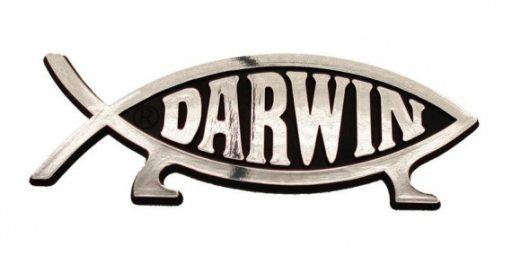Wisconsin District to Teach Creationism
Wisconsin district to teach more than evolution (CNN-AP)
School officials have revised the science curriculum to allow the teaching of creationism, prompting an outcry from more than 300 educators who urged that the decision be reversed. Members of Grantsburg’s school board believed that a state law governing the teaching of evolution was too restrictive. The science curriculum “should not be totally inclusive of just one scientific theory,” said Joni Burgin, superintendent of the district of 1,000 students in northwest Wisconsin. Last month, when the board examined its science curriculum, language was added calling for “various models/theories” of origin to be incorporated.
The decision provoked more than 300 biology and religious studies faculty members to write a letter last week urging the Grantsburg board to reverse the policy. It follows a letter sent previously by 43 deans at Wisconsin public universities. “Insisting that teachers teach alternative theories of origin in biology classes takes time away from real learning, confuses some students and is a misuse of limited class time and public funds,” said Don Waller, a botanist at the University of Wisconsin-Madison. Wisconsin law mandates that evolution be taught, but school districts are free to create their own curricular standards, said Joe Donovan, a spokesman for the state Department of Public Instruction.
There have been scattered efforts around the nation for other school boards to adopt similar measures. Last month the Dover Area School Board in Pennsylvania voted to require the teaching of alternative theories to evolution, including “intelligent design” — the idea that life is too complex to have developed without a creator.
The state education board in Kansas was heavily criticized in 1999 when it deleted most references to evolution. The decision was reversed in 2001. In March, the Ohio Board of Education narrowly approved a lesson plan that some critics contended opens the door to teaching creationism.
While this isn’t particularly surprising–as we rediscovered last Tuesday, this is a very religious country–it is somewhat distressing. Matters of religious faith have no place in a science curriculum.
I would have no problem, however, with a scientifically-based examination of creationism. Many legitimate scientists are also deeply religious. A couple hours explaining how biblical teaching squares with evolution and other scientific learning would be a valuable exercise.






Yep. There is no reason it can’t be mentioned and compared. It exists as a theory. To discuss it is not to be all non-secular and impose a state religion.
One issue is whether these people have a right to teach a curriculum they want. You are commenting from far away.
The underlying concern of “church and state” is avoided as long as it is taught without reference to a religous text (i.e. intelligent design). I don’t believe in creationism as defined by religion, but things are just a little tooooo structured to be by random chance (there is also the small problem of there not being a feedback loop in the current evolutionary model).
And I won’t even get into the ammount of faith that is required for modern science, including evolution. Seen a superstring lately? How about a quason? Kuhn commented on science’s set of “received beliefs”.
I’m a strong believer in giving people what they want, if this school wants to teach Creationism along with Faith based Chemistry and Bible code Math 101 I say “Just do it”!
I used to worry about the hatred that large parts of America has for science and rational thought but you know what, the kids that actually want to challenge their little world view can use Google. More importantly, lets face it the spearhead of American scientific and technological innovation has always been Immigration, as long as we can pick a good number of the best minds from elsewhere this country will do fine as a whole though I really have my doubts about the prospects for these good folks.
I’ve long had the impression that the embrace of evolution-by-self-organized-accident theory, and the sometimes hysterical opposition to other interpretations of the same evidence, is itself quasi-religious in its fervor.
Good ideas will always stand up to challenge from inferior ones, provided the challenge is fairly heard.
According to an article in the autumn Wilson Quarterly, evolution as a theory is in the process of revision as well. Because of the characteristics of the West Nile Virus, the original thought that evolution was a “ever-branching, never-crossing tree of diversity” is being shown to be false. Oh well, back to the drawing board!
I have a solution: Spend about thirty seconds of classroom time explaining that, in the face of all science has to offer, and in the absence of any hard evidence either way, although there are various conflicting theories regarding the origins of life on our planet . . . WE DON’T KNOW.
Then get on to teaching what we do know.
The idea of teaching theories as part of scientific curriculum is preposterous. It stems directly from a “religion of science” in which science is supposed to be able to explain everything authoritatively. While science is supposed to analyze all data equally, the presupposition has always remained that there is no supreme being, therefore any possible evidence of that being’s existance must be discarded immediately.
Just a perusal through historical record of how many times “scientific facts” have been refuted and disproven show that any type of absolute presupposition must be avoided in the name of genuine scientific research.
Not only we don’t know anything really about how life started, but I don’t think Creationism or evolution are particularly revelent to the education of children. Their time is better spent dealing with useful information.